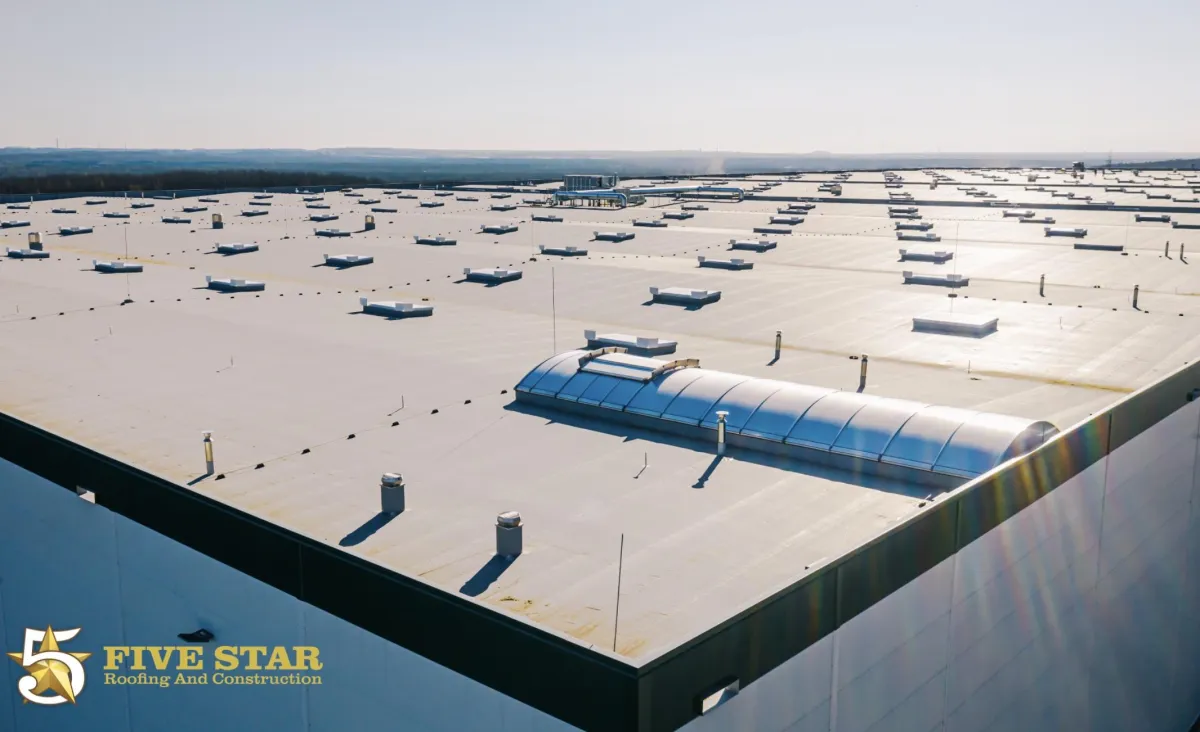
Residential vs. Commercial Roof Construction in Florida: Key Differences
Florida’s unique climate—with its intense sun, frequent rain, hurricanes, and high humidity—makes roofing an especially critical aspect of building construction. Whether it's for a single-family home or a large business complex, roof construction in Florida must meet strict standards. However, the requirements, materials, and methods used in residential versus commercial roofing differ substantially. Below, we explore these key differences in the context of Florida's climate and regulatory landscape.
1. Design and Structural Complexity
One of the most noticeable differences is in the design. Residential roofs in Florida are typically steep-sloped and involve more aesthetic considerations. These are usually gable or hip roof styles that help with water runoff and add curb appeal. In contrast, commercial roofs tend to be low-slope or flat, which allows space for HVAC systems, solar panels, and other utilities.
The structural load of a commercial roof is also far greater. It must support heavy equipment, higher traffic, and sometimes green roofing systems. This requires reinforced steel or concrete decking, unlike residential roofs, which are often framed with wood trusses.
2. Materials Used
Material choice varies widely between residential and commercial projects:
Residential roofing in Florida often uses asphalt shingles, metal panels, clay or concrete tiles, and increasingly, standing seam metal roofs. Metal roofs are particularly popular in coastal areas because they offer strong hurricane resistance and longevity.
Commercial roofing, on the other hand, uses materials like TPO (Thermoplastic Polyolefin), EPDM (rubber), PVC, or modified bitumen. These materials are ideal for flat surfaces, provide UV protection, and offer superior water resistance.
In both cases, hurricane-resistant roofing systems are a must due to Florida’s vulnerability to storms.
3. Installation Process
Residential roof installation is generally quicker and less expensive than commercial roofing. The simpler structure of residential buildings allows for faster shingle or tile placement, sometimes taking only a few days.
Commercial roofs, with their flat structure and multiple layers (insulation, vapor barriers, membranes), require specialized labor, longer timelines, and heavier equipment. The logistics of applying membranes or torch-down materials are more complex and are usually handled by commercial roofing contractors certified for these systems.
4. Building Codes and Wind Uplift Requirements
Florida enforces some of the strictest building codes in the U.S., especially after Hurricane Andrew in 1992 and Hurricane Irma in 2017. The Florida Building Code (FBC) requires both residential and commercial roofs to meet stringent wind uplift and impact resistance standards. However, the specific requirements differ:
Residential roofs must often meet wind uplift ratings of up to 160 mph in coastal zones.
Commercial roofs, especially those on critical facilities like hospitals, may have higher wind-resistance and waterproofing requirements.
Additionally, the FBC mandates roofing underlayment, edge securement, flashing details, and water barrier standards that vary by structure type.
5. Maintenance and Lifecycle
Commercial roofs generally have longer lifespans—often 20 to 40 years—due to the durable membranes used. However, they require routine inspections to manage pooling water, membrane damage, and UV degradation.
Residential roofs, particularly asphalt shingle types, may last 15–25 years, though metal and tile options can exceed 40 years. Maintenance for homeowners is simpler but should include post-storm inspections to prevent long-term damage.
Conclusion
In Florida’s demanding climate, choosing the right roofing system is about more than cost or aesthetics—it's about durability, code compliance, and long-term value. While residential roofs prioritize curb appeal and quick installation, commercial roofing systems are engineered for performance, scale, and structural complexity. Both must be built with Florida's storms in mind, but they go about it in very different ways.
Five Star Roofing & Construction is your experienced Commercial Roofers in Florida and Storm Damage Repair experts, offering roof repair services throughout Tampa Bay, Pinellas, Clearwater, Tampa, and Orlando for over 20 years. We are a Licensed, Bonded, and Insured Florida Contractor. We happily offer Free Roof Inspections and Roof Assessments.


